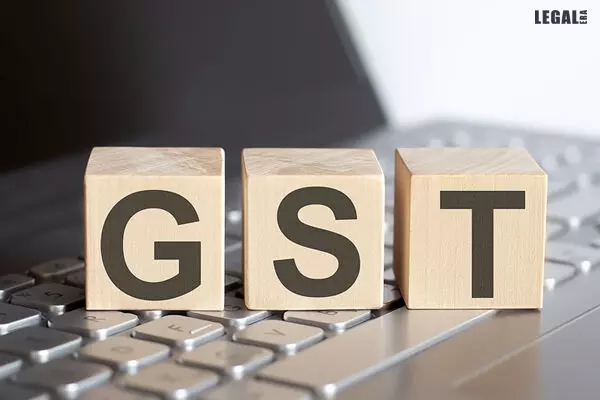- Home
- News
- Articles+
- Aerospace
- Agriculture
- Alternate Dispute Resolution
- Banking and Finance
- Bankruptcy
- Book Review
- Bribery & Corruption
- Commercial Litigation
- Competition Law
- Conference Reports
- Consumer Products
- Contract
- Corporate Governance
- Corporate Law
- Covid-19
- Cryptocurrency
- Cybersecurity
- Data Protection
- Defence
- Digital Economy
- E-commerce
- Employment Law
- Energy and Natural Resources
- Entertainment and Sports Law
- Environmental Law
- FDI
- Food and Beverage
- Health Care
- IBC Diaries
- Insurance Law
- Intellectual Property
- International Law
- Know the Law
- Labour Laws
- Litigation
- Litigation Funding
- Manufacturing
- Mergers & Acquisitions
- NFTs
- Privacy
- Private Equity
- Project Finance
- Real Estate
- Risk and Compliance
- Technology Media and Telecom
- Tributes
- Zoom In
- Take On Board
- In Focus
- Law & Policy and Regulation
- IP & Tech Era
- Viewpoint
- Arbitration & Mediation
- Tax
- Student Corner
- AI
- ESG
- Gaming
- Inclusion & Diversity
- Law Firms
- In-House
- Rankings
- E-Magazine
- Legal Era TV
- Events
- News
- Articles
- Aerospace
- Agriculture
- Alternate Dispute Resolution
- Banking and Finance
- Bankruptcy
- Book Review
- Bribery & Corruption
- Commercial Litigation
- Competition Law
- Conference Reports
- Consumer Products
- Contract
- Corporate Governance
- Corporate Law
- Covid-19
- Cryptocurrency
- Cybersecurity
- Data Protection
- Defence
- Digital Economy
- E-commerce
- Employment Law
- Energy and Natural Resources
- Entertainment and Sports Law
- Environmental Law
- FDI
- Food and Beverage
- Health Care
- IBC Diaries
- Insurance Law
- Intellectual Property
- International Law
- Know the Law
- Labour Laws
- Litigation
- Litigation Funding
- Manufacturing
- Mergers & Acquisitions
- NFTs
- Privacy
- Private Equity
- Project Finance
- Real Estate
- Risk and Compliance
- Technology Media and Telecom
- Tributes
- Zoom In
- Take On Board
- In Focus
- Law & Policy and Regulation
- IP & Tech Era
- Viewpoint
- Arbitration & Mediation
- Tax
- Student Corner
- AI
- ESG
- Gaming
- Inclusion & Diversity
- Law Firms
- In-House
- Rankings
- E-Magazine
- Legal Era TV
- Events
Karnataka High Court Sets 90-Day Deadline for Mindlogicx Infratec to Pay ₹1.59 Crore in GST Attachment Case

Karnataka High Court Sets 90-Day Deadline for Mindlogicx Infratec to Pay ₹1.59 Crore in GST Attachment Case
The Karnataka High Court has issued a directive stating that the attachment order on Sant Gadge Baba Amravati University will remain valid for 90 days. During this time, the petitioner, Mindlogicx Infratec Limited, is obligated to pay a sum of ₹1,59,43,360 to the Deputy Commissioner of Commercial Taxes. This direction was based on the petitioner's affidavit, wherein they committed to making the payment within the specified timeframe.
The main issue in the present case revolved around an order issued by the Deputy Commissioner of Commercial Taxes, assessing a total amount of ₹2,09,43,366 (inclusive of GST, interest, and penalty), which the petitioner was required to pay. As the petitioner failed to make the payment, the Deputy Commissioner of Commercial Taxes issued a notice seeking attachment of the petitioner's receivables from its clients. In response to the attachment, the petitioner filed a writ petition challenging the legality of the said attachment.
During the proceedings, the petitioner submitted an affidavit affirming that they had already made a payment of ₹50,00,000. Furthermore, the petitioner provided an undertaking to pay the remaining balance of ₹1,59,43,360 to the respondent within 90 days from the date of the affidavit, specifically on or before October 3, 2023.
Taking note of the affidavit's contents, the bench presided by Justice Sunil Dutt Yadav proceeded to vacate the orders of attachment listed in Annexures-H to L. However, the Bench upheld the attachment of Sant Gadge Baba Amravati University.
The Bench placed a strong emphasis on the absence of any further extension of time and cautioned that failure to make the payment within the stipulated period would subject the petitioner to potential contempt of court proceedings. Additionally, the tax authorities were granted the freedom to initiate recovery proceedings in the event of non-compliance. It was further clarified that if the payment, as undertaken in the affidavit, is made within the 90-day timeframe, the order of attachment specified in Annexure-M would be lifted.



